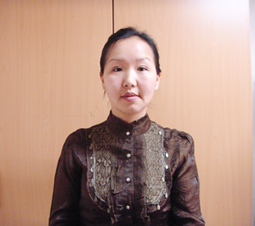 The Gazette interviewed Durvud Batzaya, a Keimyung University student from Mongolia. We asked her about life in Korea and Keimyung University.
The Gazette interviewed Durvud Batzaya, a Keimyung University student from Mongolia. We asked her about life in Korea and Keimyung University. 1. Would you introduce yourself?
My name is Durvud Batzaya and I’m from Mongolia. I came to Korea on August 28, 2009. I am learning Korean at the Center for International Education.
2. Why did you choose to study in Keimyung University?
Around 20 universities have departments of Korean studies in Mongolia, but most are located in Ulan Bator and only two, Darhan University, which I attended, and Shindarhan University are located in the provinces. Last September, Shindarhan-Keimyung Korean Culture Center was established by Keimyung University and Shindarhan University. I heard about Keimyung University a lot through this center.
I have a lot of interest in Korea, for example, Korean culture, life, and education. I heard that Keimyung University Graduate School has a Teaching Korean as a Foreign Language program so I wanted to learn the method of teaching Korean to foreigners.
3. Would you introduce your hometown and tell us the differences between universities in Mongolia and Korea?
I was born in Darhan, the second city of Mongolia. It is located about 220 km north of Ulan Bator, the capital of Mongolia. Darhan is located by the national road connecting Russia and Mongolia.
Keimyung University is bigger than I thought and the campus is very beautiful, and it has a lot of foreign students. Korean students speak to foreign students in English in school and the dormitory. It is also interesting to speak to Chinese, Indian, or Vietnamese students in Korean.
4. What was your difficulty when you came to Korea?
It is my first time to live in a foreign country. When I arrived at Incheon Airport, I was shocked by the hot weather. I hadn’t experienced such heat before in Mongolia.
In Korea, some people talk fast or slowly, and others speak with Daegu dialect. I study Korean only in class, so it is difficult to understand Korean outside class. However, I’ll try to learn Korean by talking to many people. Listening to the radio or watching television is also a good way, for improving my Korean competence.
Fortunately, many Koreans try to help me so I live without difficulty thanks to them. I really appreciate their help.
5. What do you want to achieve during your stay in Korea and what are your future plans?
I still learn Korean in the Korean Language Institute. I want to apply for a master’s degree course and next obtain a qualification for a Korean language teacher. When I go back to Mongolia, I want to teach Korean in Darhan University and become a professor at the Department of Korean Studies.








